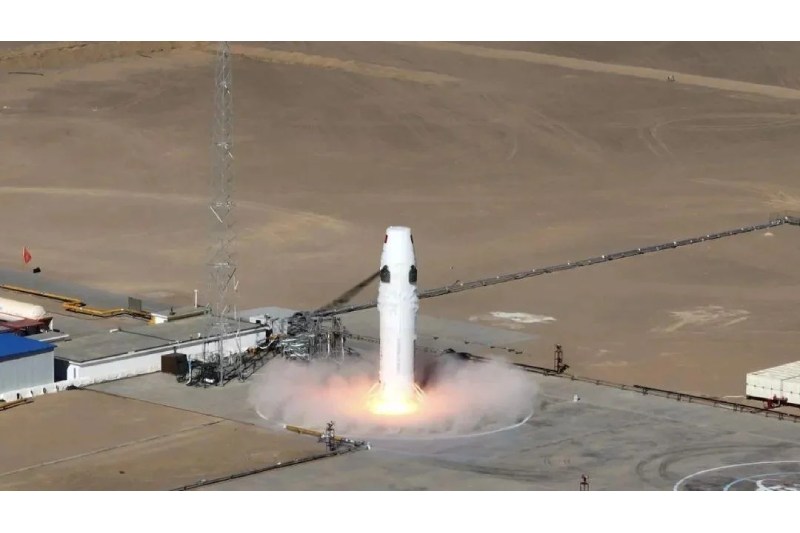Tests with China’s 130-Ton Reusable Rocket Engine Break Records

China Aerospace Science and Technology Corp (CASC), the country’s principal space contractor, has finished critical engine testing for its reusable rocket engine.
Developed by CASC’s Sixth Academy, the 130-ton reusable liquid oxygen kerosene engine will power CASC’s reusable rockets, including the Long March 10.
The two ground ignition tests were finished by CASC’s engineers on Saturday, April 13, according to sources.
With its new engine, China’s record-breaking engine test run CACC is said to have finished 30 ignition starts and 15 repetition tests, totaling more than 3,900 seconds.
A news statement stated that the 15 repeat tests beat the previous record for China’s primary engine testing for liquid rockets.
The 130-ton reusable liquid oxygen kerosene engine has strong expandability and is highly reliable, according to the research team that conducted the most current engine testing. They set out to master large-range thrust adjustment, multiple ignitions, and other technologies so that it could operate well as a reusable engine.
In an effort to extend the engine’s lifespan after several reuses, the team also says that it has streamlined technology for assessment and maintenance.
According to mission insiders, “reusable rockets involve four major categories of key technologies compared to traditional rockets.”
“First, making sure the rocket lands precisely during its return; second, making sure it lands steadily and recovers during its landing; third, making sure the rocket is durable enough to meet requirements for reuse; and fourth, making sure local maintenance is completed quickly when needed.”
China’s Quick Ascent in Space
China is working to become the world’s top space power, and one aspect of that effort is the country’s quick advancement in the space sector.
Conversely, China may eventually possess both state-owned and privately held reusable rockets in its arsenal.
China intends to conduct test launches for two state-owned reusable rockets in 2025 and 2026, according to reports that surfaced last month. The Long March 10 launch vehicle, which has the potential to send China’s first astronauts to the Moon, is anticipated to be one of those rockets.
Reusable rockets are also being developed by a number of Chinese private space companies. A portion of those intend to fly for the first time this year and the following. For instance, Galactic Energy may test-fly its reusable Pallas-1 rocket later this year, though it’s not anticipated that the initial test flight would result in a recovery.